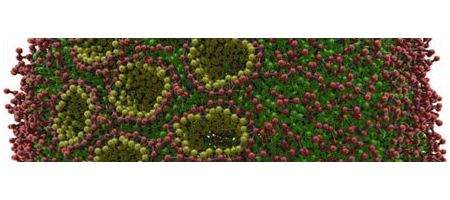An international team of scientists has embarked on an ambitious research project to develop an in vivo biological cell that can be reprogrammed like a computer operating system.

It could revolutionise synthetic biology, they say, and would pave the way for scientists to create completely new and useful forms of life.
“We are looking at creating a cell’s equivalent to a computer operating system in such a way that a given group of cells could be seamlessly re-programmed to perform any function without needing to modify its hardware,” says professor Natalio Krasnogor of the University of Nottingham.
“We are talking about a highly ambitious goal leading to a fundamental breakthrough that will, ultimately, allow us to rapidly prototype, implement and deploy living entities that are completely new and do not appear in nature, adapting them so they perform new, useful functions.”
The results could be everything from new sources of food to medical breakthroughs such as drugs tailored to the individual and the growth of new organs for transplant patients.
The project — dubbed Towards a Biological Cell Operating System, or AUdACiOuS — will begin by attempting to make e.coli bacteria much easier to program.
“Currently, each time we need a cell that will perform a certain new function we have to recreate it from scratch which is a long and laborious process. Most people think all we have to do to modify behaviour is to modify a cell’s DNA but it’s not as simple as that — we usually find we get the wrong behaviour and then we are back to square one,” says professor Krasnogor.
“If we succeed with this AUdACiOuS project, in five years time, we will be programming bacterial cells in the computer and compiling and storing its program into these new cells so they can readily execute them.”






